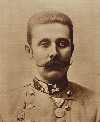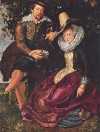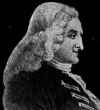Daily Content Archive
(as of Wednesday, June 28, 2017)| Word of the Day | |||
|---|---|---|---|
| |||
| Daily Grammar Lesson | |
|---|---|
Using the Past PerfectIf we are highlighting that the action or event in the past perfect tense came before another action or event, this second verb is often (but not always) in the past simple tense. The past perfect can appear in a sentence either before or after a later action or event. Regardless of its position, what does the past perfect always refer to? More... | |
| Article of the Day | |
|---|---|
 Cyclo-CrossPerformed on short courses featuring pavement, wooded trails, grass, steep hills, and obstacles, cyclo-cross is a form of bicycle racing that requires riders to dismount, carry their bikes while maneuvering around obstructions, and remount without losing speed. Some trace the origins of the sport to the early 1900s, when European road racers would race to the next town by cutting through fields, over fences, and taking various other shortcuts. Why did the sport gain popularity in 1910? More... | |
| This Day in History | |
|---|---|
 Austrian Archduke Franz Ferdinand Assassinated (1914)Nephew of Francis Joseph, emperor of Austria and king of Hungary, Ferdinand became heir apparent in 1896. While visiting Sarajevo, he and his wife were assassinated by Serbian nationalist Gavrilo Princip. Austria soon declared war on Serbia, prompting countries allied with Austria-Hungary—the Central Powers—and those allied with Serbia—the Triple Entente—to declare war on each other, precipitating WWI. The assassination was not the first attempt on his life. What had happened earlier that day? More... | |
| Today's Birthday | |
|---|---|
 Peter Paul Rubens (1577)Rubens was a prolific 17th-century Flemish Baroque painter whose exuberant style emphasized movement, color, and sensuality. Known for his altarpieces, portraits, and landscapes, Rubens ran a large studio in Antwerp where he produced more than 2,000 paintings by supervising an enormous workshop of skilled apprentices. Also a diplomat, Rubens was knighted by both Philip IV of Spain and Charles I of England. Aspects of Rubens's paintings gave rise to the term "Rubenesque," which means what? More... | |
| Quotation of the Day | |
|---|---|
 Custom may lead a man into many errors; but it justifies none. Custom may lead a man into many errors; but it justifies none.Henry Fielding (1707-1754) | |
| Idiom of the Day | |
|---|---|
nice one— An informal expression of praise for having done something well. (It can also be used sarcastically to mean the opposite.) More... | |
| Today's Holiday | |
|---|---|
 Zurich Festival (2023)This international music, dance, and theater festival in Switzerland was founded in 1909 by Alfred Reucker, director at the time of the Zurich Opera House. It was patterned after the Bayreuth Festival, with the primary emphasis on opera, but since that time it has expanded to include orchestral and chamber music, vocal and instrumental recitals, ballet, and art exhibits. Exhibits in city museums are set up to coincide with the festival, and there are master classes for young musicians. More... | |
| Word Trivia | |
|---|---|
Today's topic: judgeaffidavit, deponent - An affidavit (literally, "he has stated on oath") is taken by a judge, while the deponent swears, makes, or takes an affidavit. More... arbiter - Latin for "judge, supreme ruler." More... arbitrate - Can mean "give an authoritative decision" (from Latin arbiter). More... judge - From Latin jus, "law," and dicere, "to say." More... | |